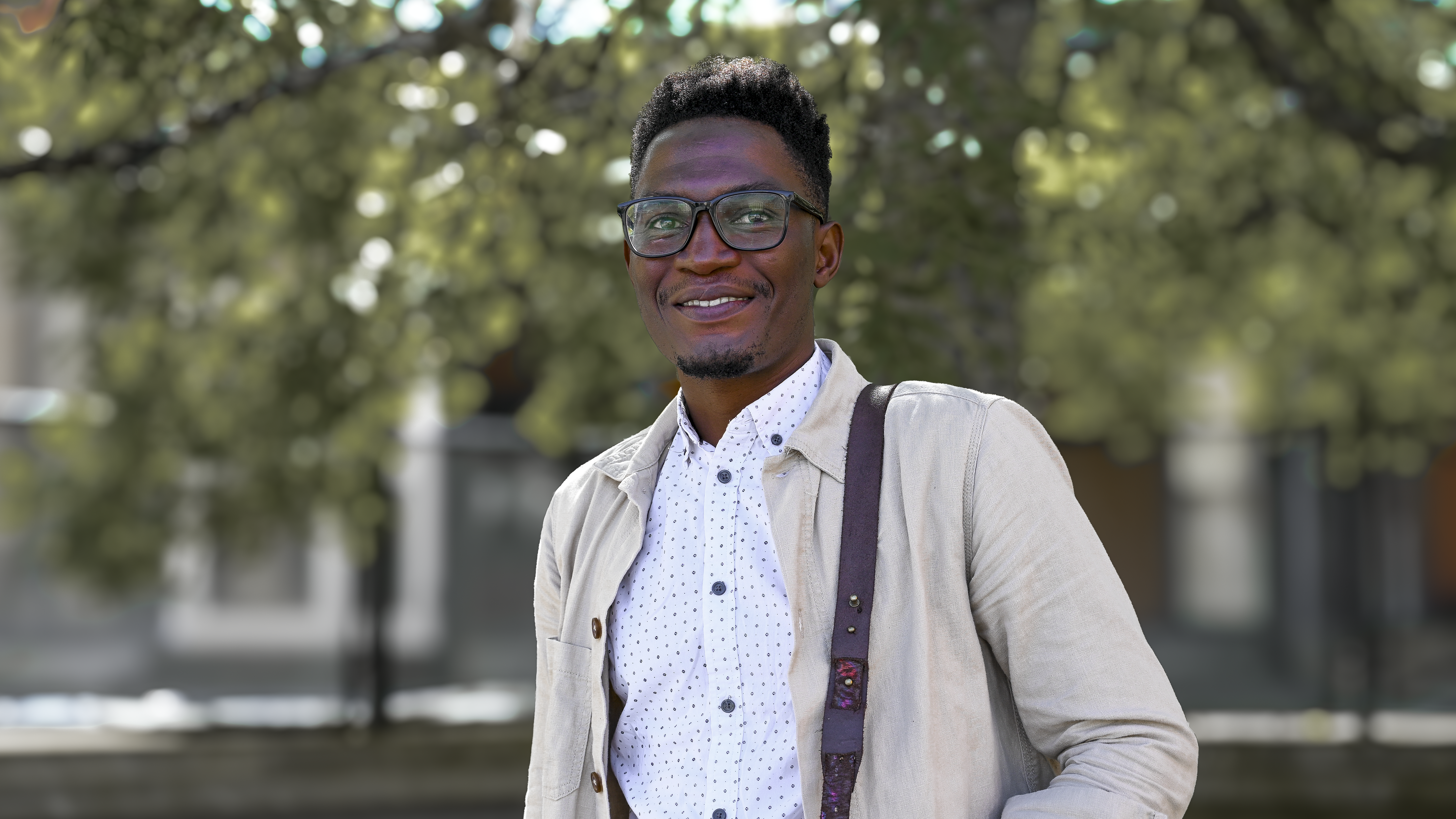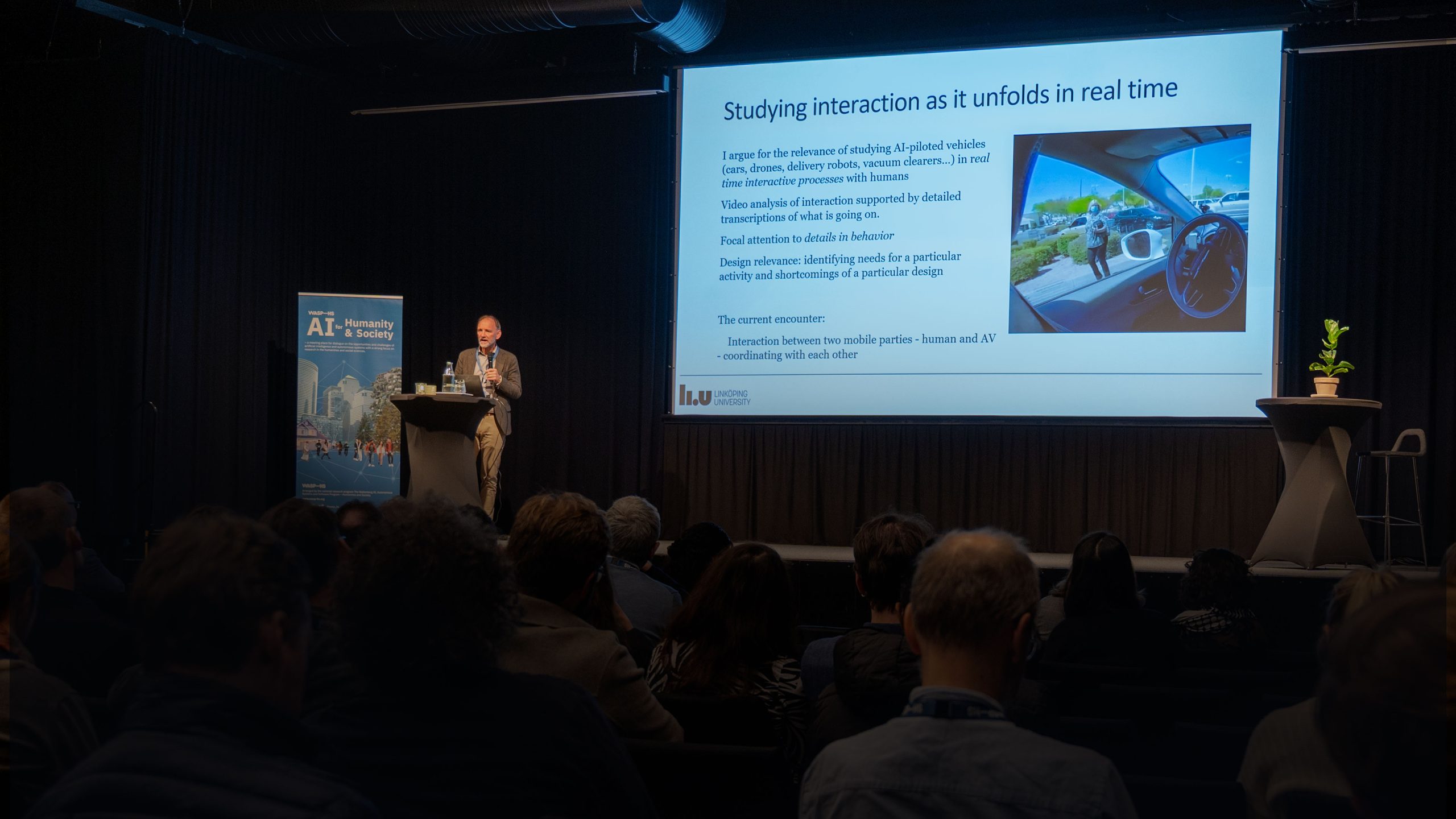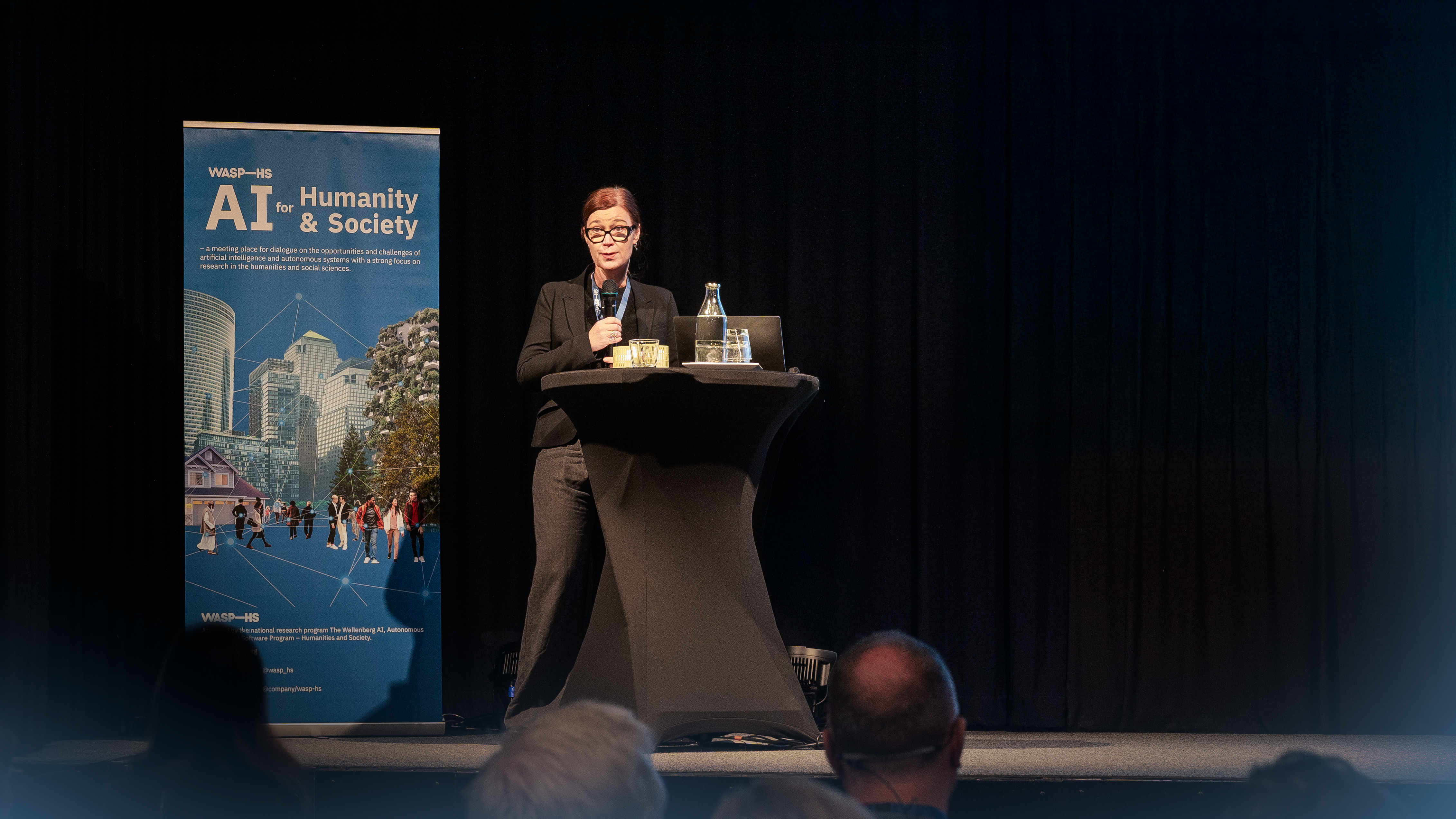Does AI affect the authenticity of our heritage? What are the impressions of those working with heritage archives on AI? These are some of the questions I am currently exploring as my research is on how the use of AI influences the authenticity of embodied heritage archives. With this backdrop I attended the WASP-HS Winter Conference 2025.
I am a WASP-HS affiliated PhD student in Information Studies at Uppsala University and am currently in my second year, meaning that this was my second winter conference. While I was given the opportunity to present my research orally last year, this year I presented a poster that showcased some key points of my ongoing research. I must say, it gave me the opportunity to see how much my research has evolved in just one year.
WASP-HS Annual Exchange
The “WASP-HS Annual Exchange” on the first day of the conference was a really interesting conversation between Petter Falk, first WASP-HS PhD student to graduate and Mark Fagan of the Harvard Kennedy Business School. To make things even better, the talk was expertly moderated by Hannah Pelikan. During the conversation, Petter introduced his completed research, beautifully compiled into a book—his thesis. That is it, the moment we are all looking forward to! Meanwhile, Mark shared insights on the progress of automated vehicles—the good, the bad, and the ugly. A very interesting and wonderful talk. Us WASP-HS PhD students are looking forward to coming WASP-HS Annual Exchanges.
“Casual Conversations Often Provide New Perspectives”
The WASP-HS Winter Conference is an excellent opportunity for all within the program to exchange knowledge. Even casual conversations often lead to new perspectives that contribute to making one’s work more nuanced and balanced. So, I would like to encourage everyone to grab a cup of coffee with your fellow researchers – the discussion may give you more insights than you could have ever imagined!
The second day of the conference featured a poster session where I presented my research. I gained valuable insights from others regarding my research and its potential future directions. Additionally, I had the opportunity to learn about various other research projects, discovering new applications of AI in the humanities and social sciences. While the immediate relevance of others’ research to your own work might not always be clear, it’s crucial to continuously gather knowledge about related fields. This broader understanding can spark ideas and potentially help you develop a research concept for your post-doc.
Workshop for Collaborative Interpretation
Among about 15 other WASP-HS PhD students I attended the workshop “The Data Puzzle: A Moment of Collaborative Interpretation”, led by Charlotte Högberg. Charlotte challenged us to use colored paper, magazines, scissors and glue, to create physical representation of our research. The idea of the workshop was for everyone to present a part of their research that is “puzzling” them and then pieces everyone’s parts together to find “the bigger picture”. I found it astounding to see how creative everyone were.
Project Highlights
The last day of the conference was dedicated to presenting highlights of ongoing WASP-HS research. I was especially able to relate Kristina Höök’s work on “dancing robots”. Just like me, Kristina and her research team, are studying movement and AI and I found it very relatable. Kristina spoke about the dischotomy between body and mind, emotion and reality, as well as aesthetics and ethics. She also mentioned as a quote by Donna J. Haraway—“Intelligence is corporeal”. This gave me a mental framework to consider for my own research on how heritage is represented in the human body. The project highlights were a great way to end the conference!
Atmosphere Suited for Growth
For early-career researchers, events like the winter conference are invaluable. They provide a supportive space for PhD students to present their work among peers who are also in the early stages of their academic journey. In this environment, there’s no pressure to deliver a “perfect” talk or poster—making it an ideal opportunity to share ideas, receive constructive feedback, and grow as a researcher. I am already looking forward to the next Winter Conference in 2026—wow, time is running fast. Thanks to everyone who was involved in making this conference a wonderful experience in beautiful wintery Stockholm!





